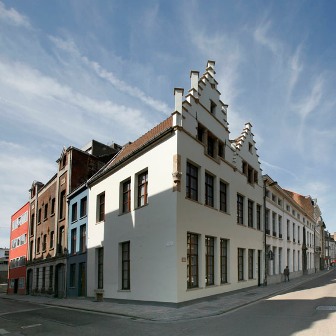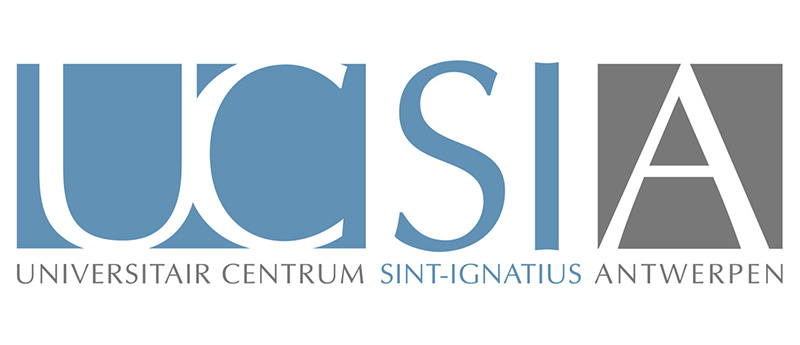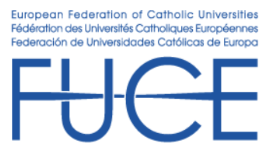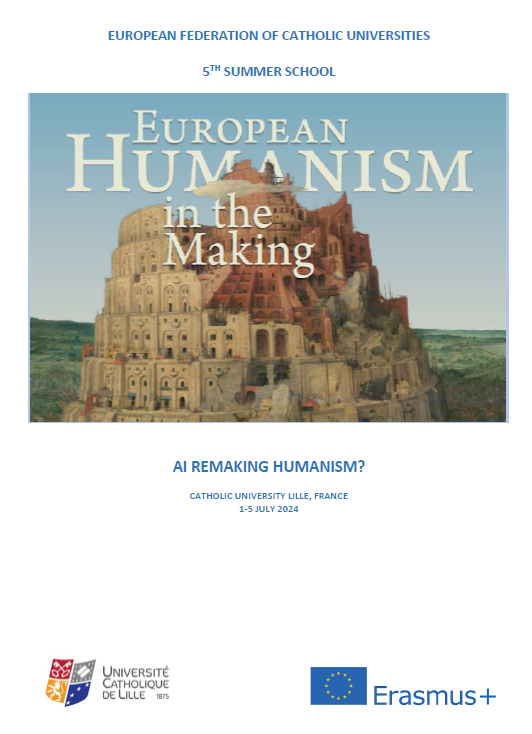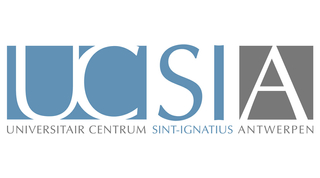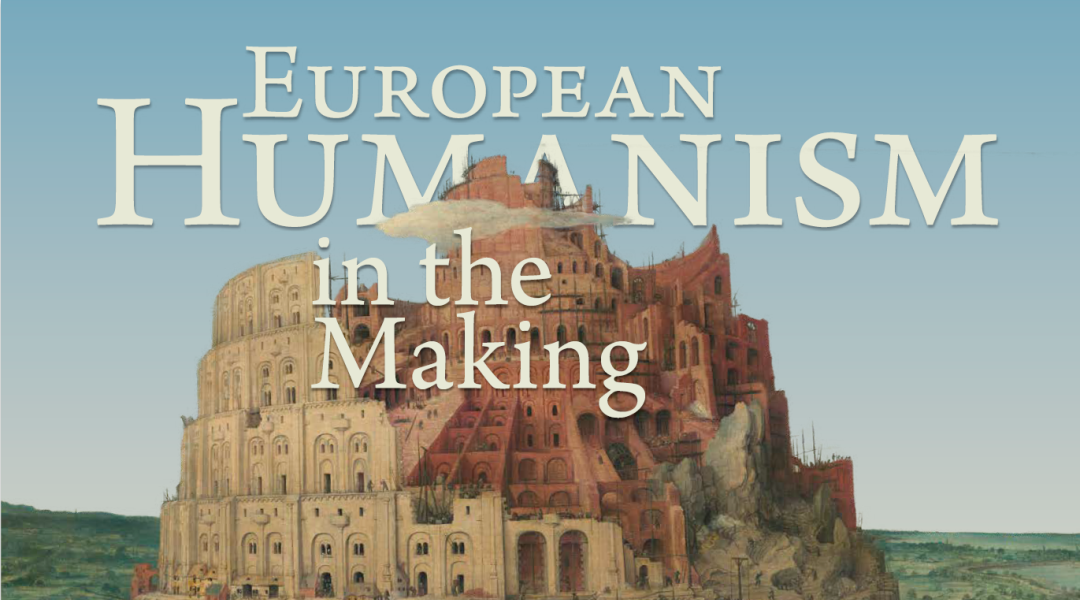
AI Remaking Humanism?
FUCE Summer School
1-5 July 2024
FUCE
European Federation of Catholic Universities
The fifth edition of the summer school ‘European Humanism in the Making’ of the Federation of Catholic Universities in Europe and Lebanon (FUCE), coordinated by the University Centre Saint-Ignatius Antwerp (UCSIA), will take place on the campus of the Catholic University of Lille (UCL) from Monday July 1st until Friday, July 5th 2024.
After 4 editions, of which 3 were hosted by the LUMSA university of Rome (in 2019 & 2022 in Gubbio and in 2023 in Palermo) and 1 was held online (in 2021) another member institute of the FUCE takes over to host the upcoming 3 editions.
Up till now 85 (2nd and 3rd year) bachelor students from about 30 member universities participated in this international exchange, reflecting with their peers from Lebanon, the EU and wider Europe, on the cultural, religious and philosophical foundations of the European project as a basis to rethink its future.
Each year a selection of students voice their concerns and hopes for Europe in a public (online) panel debate ‘MyEurope’.
To re-boost Europhilia as an antidote against widespread Europhobia, Europeans have to reconsider anew those structural ingredients and conquests that have been the driving pillars of European life, one such pillar being humanism.
Inspired by the appeal made by Pope Francis, on accepting the Charlemagne Prize in May 2016, for the recovery of a lost – or maybe never fully recognized – ‘soul’ of Europe, based on the agenda for a new humanism resulting from historical knowledge and the ethical recollection that it can foster collectively, the course programme is entitled ‘European Humanism in the Making’. In doing so it wants to address his question “What happened to humanist Europe, the defender of human rights, democracy and freedom?” and take it further to tap into historical roots as bearers of future prospects for the European project.
Courses
The course content of this interdisciplinary five-day programme was developed by a team of 5 professors (Sarah Durelle-Marc from UCL, Peter Hanenberg from the Catholic University of Lisbon, Ali Mostfa from the Catholic University of Lyon, Michael Shortall from St.-Patrick’s Pontifical University, Maynooth, Ireland and Fernando Ariza from CEU San Pablo in Madrid) and consists of five courses (for each course an additional guest speaker is invited) structured in two parts:
PART I – Historical and Cultural Roots: Implications for Europe Today
I. Contribution of History to European Consciousness
II. Literature, the Arts, Translation and European Identity
III. European Enlightenment and the Islamic Heritage
PART II – Social and Political Construction: Implications for the Future of Europe
IV. European Social Humanism
V. Creative Leadership & Civic Engagement in Action
Webinars
AI Remaking Humanism?
Public opening lecture by Thierry Magnin on Monday 1 July, 7.00 – 8.30 p.m.UTC +2
The very fast development of numerical and AI systems induces a deep change in the mentalities and job practice today. Relations to reality, to others and to ourselves are strongly impacted in the era of algorithmic society. The aim of this talk is to precise these changes, to find how to be free when working and living with intelligent machines and to serve the common good in society. Differences between human intelligence and AI will be addressed.
Thierry Magnin is doctor in theology and physics, rector for the humanities at UCL and former president of FUCE, co-author (with Pierre Giorgini) of ‘Vers une civilization de l’algorthme? Un regard chrétien sur un défi éthique’ (Bayard, 2021).
MYEurope
Panel debate on Wednesday 3 July 2024, 7.00-8.30 p.m. UTC +2
with students participating in the summer school
More than ever, it is necessary to debate experiences, fears and hopes concerning Europe, trying to find out which will be the future of a project in which unity and diversity come together.
Bringing in perspectives from very different angles and backgrounds, the panel joins young students from all over the continent who will present and discuss their views on Europe in the making.
The panel will be moderated by Peter Hanenberg, Professor of German and Culture Studies at Universidade Católica Portuguesa in Lisbon, Vice-Rector for Research and Innovation and Director of CADOS, Católica Doctoral School. He coordinates the second course on literature, the arts, translation and European Identity of the summer school programme.
Student Testimonials
Organisers
UCSIA vzw
University Centre Saint-Ignatius Antwerp
FUCE
European Federation of Catholic Universities
Contact
Barbara Segaert
Project Coordinator UCSIA
Europe & Solidarity
E | barbara.segaert@ucsia.be
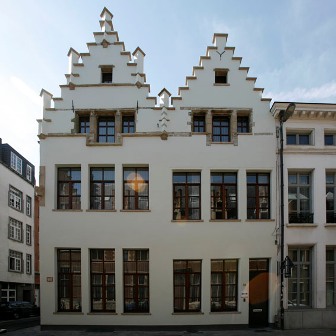
UCSIA
Koningstraat 2
B-2000 Antwerpen
info@ucsia.be
Tel. +32 (0)3 265 49 60
Voorlopige locatie tijdens de renovatiewerken:
Blindestraat 14, 2000 Antwerpen
